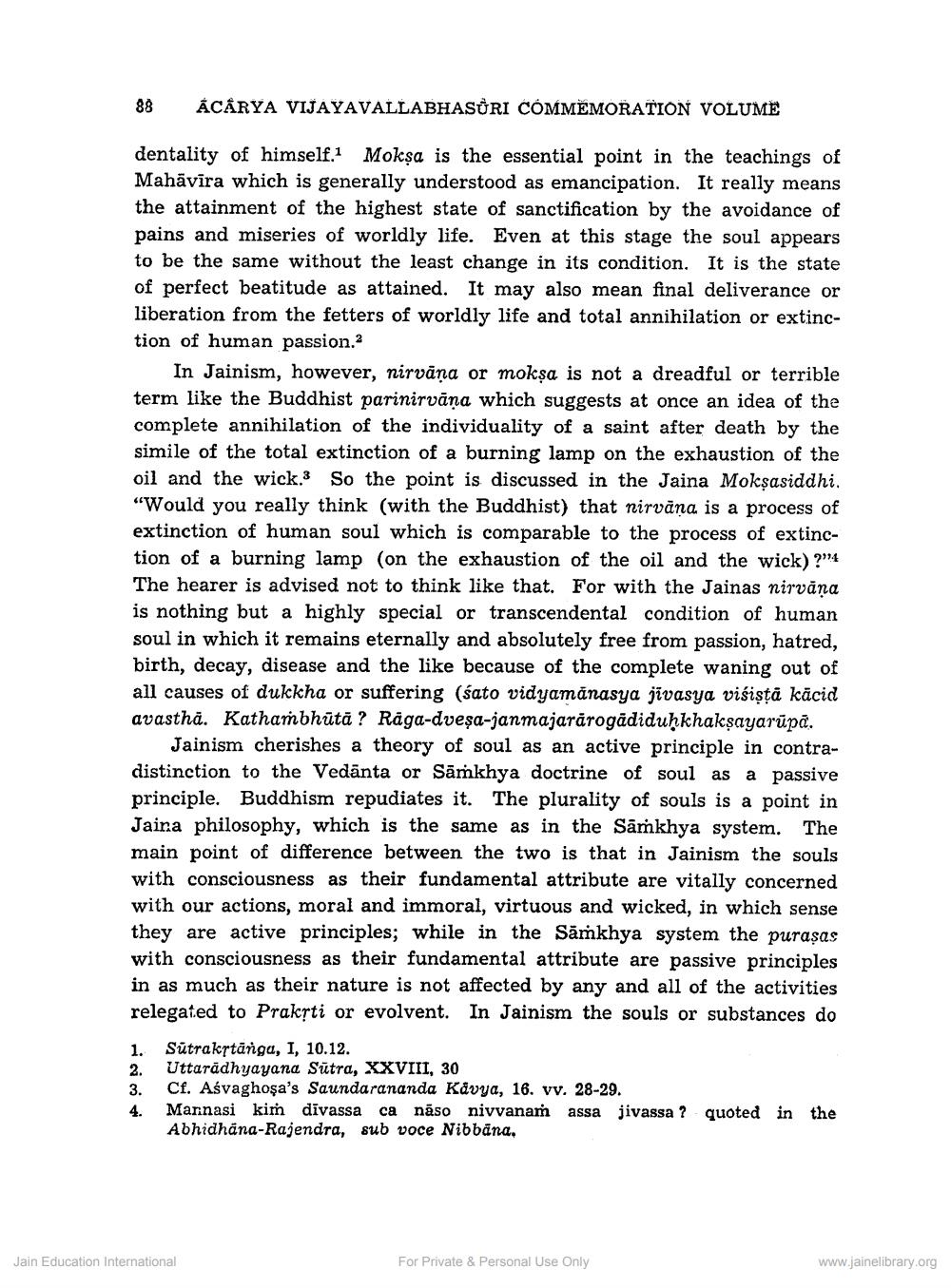Book Title: Fundamental Principles of Jainism Author(s): B C Law Publisher: Z_Vijay_Vallabh_suri_Smarak_Granth_012060.pdf View full book textPage 2
________________ 88 ÁCÄRYA VIJAYAVALLABHASŪRI COMMEMORATION VOLUME dentality of himself.1 Moksa is the essential point in the teachings of Mahāvīra which is generally understood as emancipation. It really means the attainment of the highest state of sanctification by the avoidance of pains and miseries of worldly life. Even at this stage the soul appears to be the same without the least change in its condition. It is the state of perfect beatitude as attained. It may also mean final deliverance or liberation from the fetters of worldly life and total annihilation or extinction of human passion. In Jainism, however, nirvana or moksa is not a dreadful or terrible term like the Buddhist parinirvana which suggests at once an idea of the complete annihilation of the individuality of a saint after death by the simile of the total extinction of a burning lamp on the exhaustion of the oil and the wick. So the point is discussed in the Jaina Mokşasiddhi. “Would you really think (with the Buddhist) that nirvana is a process of extinction of human soul which is comparable to the process of extinction of a burning lamp (on the exhaustion of the oil and the wick) ?”4 The hearer is advised not to think like that. For with the Jainas nirvana is nothing but a highly special or transcendental condition of human soul in which it remains eternally and absolutely free from passion, hatred, birth, decay, disease and the like because of the complete waning out of all causes of dukkha or suffering (sato vidyamánasya jivasya visiştā kācid avasthä. Kathambhūtā ? Räga-dveşa-janmajarärogādiduḥkhakşayarūpå. Jainism cherishes a theory of soul as an active principle in contradistinction to the Vedānta or Samkhya doctrine of soul as a passive principle. Buddhism repudiates it. The plurality of souls is a point in Jaina philosophy, which is the same as in the Samkhya system. The main point of difference between the two is that in Jainism the souls with consciousness as their fundamental attribute are vitally concerned with our actions, moral and immoral, virtuous and wicked, in which sense they are active principles; while in the Samkhya system the puraşas with consciousness as their fundamental attribute are passive principles in as much as their nature is not affected by any and all of the activities relegated to Praksti or evolvent. In Jainism the souls or substances do 1. Sutrakrtanga, I, 10.12. 2. Uttaradhyayana Sūtra, XXVIII, 30 Cf. Asvaghoşa's Saundarananda Kavya, 16. vv. 28-29. Marnasi kim dīvassa ca nāso nivvanam assa jivassa? quoted in the Abhidhäna-Rajendra, sub voce Nibbana, Jain Education International For Private & Personal Use Only www.jainelibrary.orgPage Navigation
1 2 3 4 5 6 7 8 9 10 11 12 13 14 15 16 17 18 19 20 21 22 ... 35
